
NGC 463 is a lenticular galaxy located about 264 million light-years away from Earth in the constellation Pisces. It was discovered by French astronomer Édouard Stephan on December 16, 1871.
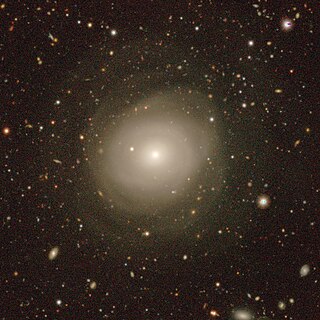
NGC 466 is a lenticular galaxy located about 227 million light-years away from Earth in the constellation Tucana. NGC 466 was discovered by astronomer John Herschel on October 3, 1836.

NGC 7022 is a barred lenticular galaxy located about 95 million light-years away from Earth in the constellation Indus. The galaxy was discovered by astronomer John Herschel on October 2, 1834.
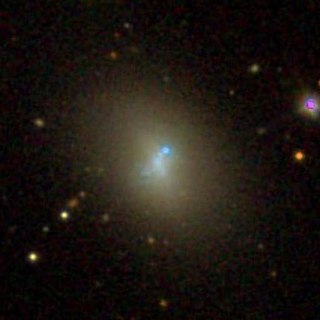
NGC 7077 is a lenticular blue compact dwarf galaxy located about 56 million light-years away from Earth in the constellation Aquarius. Discovered by astronomer Albert Marth on August 11, 1863, the galaxy lies within the Local Void.

NGC 4483 is a barred lenticular galaxy located about 55 million light-years away in the constellation of Virgo. NGC 4483 was discovered by astronomer Heinrich d'Arrest on March 19, 1865. NGC 4483 is a member of the Virgo Cluster.

NGC 4620 is a lenticular galaxy located about 65 million light-years away in the constellation of Virgo. It was discovered by astronomer John Herschel on March 29, 1830. NGC 4620 is a member of the Virgo Cluster.
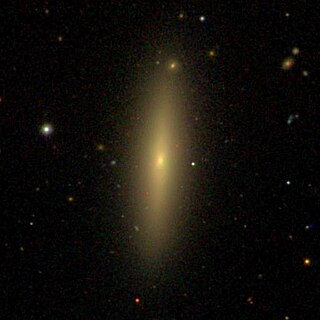
NGC 4623 is an edge-on lenticular or elliptical galaxy located about 54 million light-years away in the constellation of Virgo. NGC 4623 is classified as an E7, a rare type of "late" elliptical that represents the first stage of transition into a lenticular galaxy. NGC 4623 was discovered by astronomer William Herschel on April 13, 1784. NGC 4623 is a member of the Virgo Cluster.

NGC 4612 is a barred lenticular galaxy located about 57 million light-years away in the constellation of Virgo. NGC 4612 was discovered by astronomer William Herschel on January 23, 1784. The galaxy is a member of the Virgo Cluster.

NGC 4873 is a lenticular galaxy located about 270 million light-years away in the constellation of Coma Berenices. NGC 4873 was discovered by astronomer Heinrich d'Arrest on May 10, 1863. The galaxy is a member of the Coma Cluster.
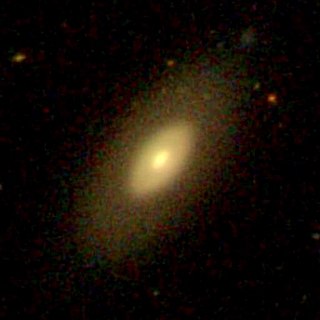
NGC 4919 is a lenticular galaxy located about 340 million light-years away in the constellation of Coma Berenices. NGC 4919 was discovered by astronomer Heinrich d'Arrest on May 5, 1864. NGC 4919 is a member of the Coma Cluster.

NGC 4754 is a barred lenticular galaxy located about 53 million light-years away in the constellation of Virgo. NGC 4754 was discovered by astronomer William Herschel on March 15, 1784. It forms a non-interacting pair with the edge-on lenticular galaxy NGC 4762. NGC 4754 is a member of the Virgo Cluster.

NGC 4479 is a barred lenticular galaxy located about 60 million light-years away in the constellation of Coma Berenices. NGC 4479 was discovered by astronomer William Herschel on April 8, 1784. It is a member of the Virgo Cluster.
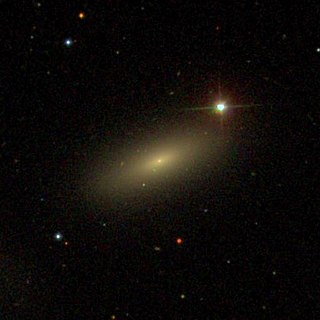
NGC 4436 is a lenticular or dwarf elliptical galaxy located about 60 million light-years away in the constellation of Virgo. NGC 4436 was discovered by astronomer William Herschel on April 17, 1784. The galaxy is a member of the Virgo Cluster.

NGC 4474 is an edge-on lenticular galaxy located about 50 million light-years away in the constellation Coma Berenices. NGC 4474 was discovered by astronomer William Herschel on April 8, 1784. It is a member of the Virgo Cluster.
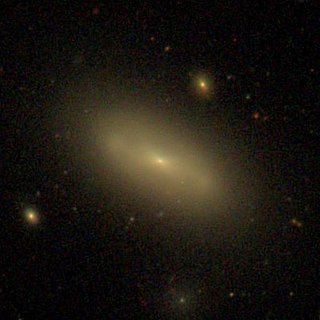
NGC 4497 is a lenticular galaxy located about 60 million light-years away in the constellation Virgo. NGC 4497 was discovered by astronomer William Herschel on March 15, 1784. It was rediscovered by astronomer Arnold Schwassmann on November 8, 1900 and was listed as IC 3452. NGC 4497 is a member of the Virgo Cluster.

NGC 4503 is a barred lenticular galaxy located around 41 to 74 million light-years away in the constellation Virgo. NGC 4503 was discovered by astronomer William Herschel on March 15, 1784. NGC 4503 is a member of the Virgo Cluster.

NGC 498 is a lenticular galaxy located about 260 million light-years away from Earth, in the constellation Pisces. NGC 498 was discovered by astronomer R. J. Mitchell on October 23, 1856.

NGC 6039 is a massive lenticular galaxy located about 460 million light-years away in the constellation Hercules. NGC 6039 was discovered by astronomer Édouard Stephan on June 27, 1870 and later rediscovered by astronomer Lewis Swift on June 27, 1886. NGC 6039 is member of the Hercules Cluster, which is part of the CfA2 Great Wall.
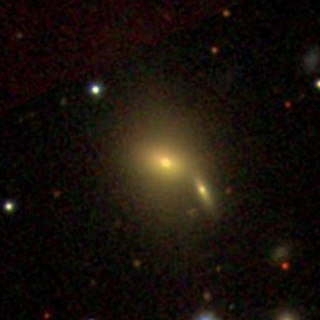
NGC 6043 is a lenticular galaxy located about 444 million light-years away in the constellation Hercules. NGC 6043 was discovered by astronomer Lewis Swift on June 27, 1886. The galaxy is a member of the Hercules Cluster.

NGC 4659 is a lenticular galaxy located about 54 million light-years away in the constellation Coma Berenices. NGC 4659 was discovered by astronomer William Herschel on April 12, 1784 and is a member of the Virgo Cluster.




















